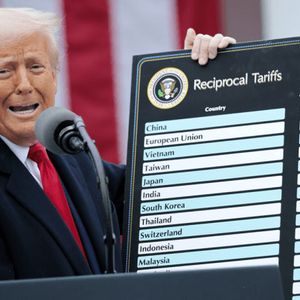China’s economic woes look to have intensified as new home sales decline, adding a new strain on an already struggling economy. Notably, the struggles have spared tech stocks, which continue to surge despite macro factors. According to Reuters , data provided by the Chinese National Bureau of Statistics show that property prices, investments, and sales have resumed their downward trend following a brief period of stability. China’s government has actively intervened in the property market Property prices in China have been on a steady decline since 2021 after a government crackdown on developers caused a liquidity crisis, abandoned projects and wary buyers. Not much has changed since then, despite recent government intervention. The government has been active in trying to stabilize the property market, including it in its 2025 agenda. The government efforts seem to have paid off for about two months as the prices were relatively steady. However, recent data from the Chinese Real Estate Information Corp shows that the market has lost these small gains as new home sales have dipped. While the government is working to normalize house prices, there’s also the issue of price controls that are usually imposed by local governments. These dips are not only attributed to government actions, as demographic shifts, low demands causing a glut of unsold homes, and low disposable income due to stagnant incomes come into play. While analysts believe that government efforts will cause a positive change in the trends, other factors threaten that change from happening soon. U.S. tariffs add pressure To add to its economic woes, the U.S. introduced a 25% levy on Chinese auto imports, among other tariffs, piling more pressure on China. China has also retaliated by imposing its own tariffs on goods from the United States, further straining bilateral trade relations between the two nations. The Trump administration is expected to roll out its own retaliatory tariffs on April 2, adding more pressure to the Chinese economy. These have raised concerns about the impact of the tariffs on Chinese consumer behavior and its manufacturing sector. China’s tech surge fails to revive broader markets On the flip side, Chinese tech stocks have been on a trend Deepseek started earlier in the year. Despite the ongoing success of these Chinese tech stocks, it has had little or no growing effect on emerging markets. This is a divergence from the normal trend where the growth in Chinese stocks has a growing effect on the stocks of other emerging markets, which have remained relatively stagnant. The current rallying effect of the Chinese stock market isn’t felt in the entire Chinese market and its impact hasn’t really improved the economy, with analysts attributing its rise to the current frenzy surrounding tech, especially artificial intelligence. According to analysts from UBS Group AG in London, the current tech boom isn’t the same as the typical Chinese boom that occurred in 2009, 2016, and 2020 and impacted emerging markets. It’s reported that since August 2024, the MSCI China Index has risen by over 30%, while the same cannot be said for emerging markets, which have fallen by 7% since then. Historically, strong growth in Chinese stocks has had a growth effect on other emerging markets. A historical example will be between 2009 and 2010, where a 63% rise in Chinese shares saw a 100% rise in emerging market shares. A similar trend is seen between 2016 and 2017, where Chinese stocks rose by 50% and the emerging markets broad gauge rose by 46%. Prior to the tech-induced boost caused by the launch of the AI model Deepseek, Chinese stocks last saw a slight surge in September 2024, thanks to the Chinese government’s overall economic stimulus. According to investment analysts, China’s new trend of outperforming its emerging markets may last longer than expected or desired. They also expressed concerns over the effects U.S. tariffs have on the Chinese stock market. Uncertain outlook for China’s economy While there are concerns about the impact of these tariffs on consumer behavior in various sectors, such as housing, investors outside of China are also taking a hint, and it could potentially affect the growth of the Chinese stock market negatively and mean more losses for emerging markets. Insights shared by Rohit Chopra, a portfolio manager at Lazard Asset Management, point out that some funds are expressing little confidence in Chinese stocks making a quick comeback and are already doing away with their Chinese holdings. While local experts point out that the Chinese market will experience some form of growth aided by government intervention, they also indicate that the growth curve won’t be steep. How these predictions play out is left to be seen as the available data looks bleak currently, given the U.S. tariffs and more impending tariffs. Cryptopolitan Academy: Tired of market swings? Learn how DeFi can help you build steady passive income. Register Now















